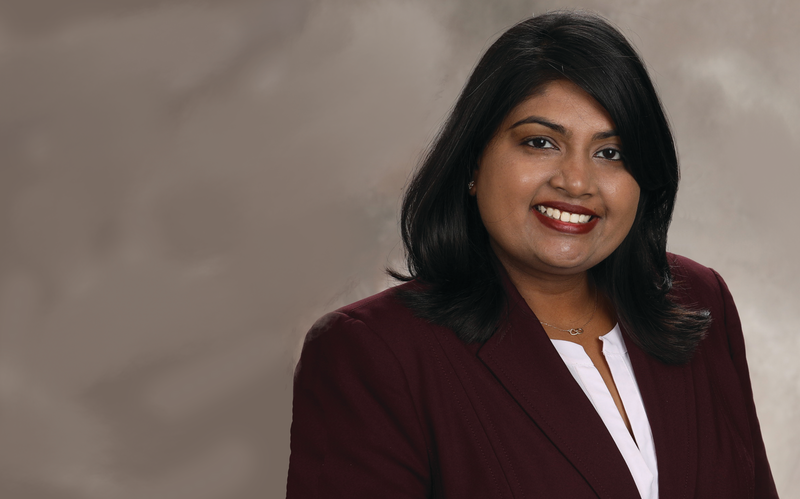TD Magazine Article
At Home in L&D
As Lee Health’s leadership development specialist, Dharani Sridharan wears many hats and seldom finds herself in her comfort zone—and that, she says, makes her role in L&D so rewarding and fulfilling.
Tue Dec 01 2020

Dharani Sridharan
Title Leadership Development Specialist
Organization Lee Health
Location Fort Myers, Florida
LinkedIn linkedin.com/in/dharani-sridharan
Education Master's degree, international human resources management and comparative industrial relations (Manchester Business School, Manchester, UK); bachelor's degree, commerce, specialized in marketing (Osmania
University, Hyderabad, India)
Favorite Quote "It is a curious thing, Harry, but perhaps those who are best suited to power are those who have never sought it. Those who, like you, have leadership thrust upon them, and take up the mantle because they must, and find to their own surprise that they wear it well." —Albus Dumbledore (Harry Potter and the Deathly Hallows by J.K. Rowling)
Dharani Sridharan grew up on the outskirts of Hyderabad, India, where her family instilled in her a high esteem for learning. Now on the other side of the world, she calls Lee Health in Fort Myers, Florida, her professional home. As
the organization's leadership development specialist, she wears many hats and seldom finds herself in her comfort zone—and that, she says, makes her role in L&D so rewarding and fulfilling.
How do you see the role of L&D professionals evolving during the next few years?
Over the past few decades, L&D has been focused on obtaining information, ideas, and theories and making them available for individuals to apply in an organizational setting. But individuals today, especially our current generation, can obtain those elements through other informal means.
Training and development professionals must be able to relate to the learners' needs and design learning programs with more emphasis on creating a safe environment for learners to put theory into practice. That is possible by investing in game-based learning, realistic simulation labs, manikins, and equipment. Creating a sandbox to enable practice, hosting a skills fair, and providing more hands-on experiential opportunities are some innovative ways to reach younger learners.
What are some of the biggest challenges and training needs in healthcare?
Learning fatigue is one of the biggest challenges. Constant and continuous changes in technology, equipment updates, policies, procedures, bedside care protocols, and treatment modalities are overwhelming and can demotivate learners.
On top of that, most healthcare professionals are required to pursue additional education to maintain their licenses and certifications. Therefore, the most pressing skills healthcare workers need are agility and resilience—the ability to adopt a focused and flexible mindset and respond quickly with adaptive techniques. Those skills will enable them to deal with learning fatigue and overcome the constant and continuous changes they face on an everyday basis.
When training leaders, what method do you find most effective?
Provide a just-in-time, bite-size learning option.
Where do you see yourself in the next five to 10 years?
I believe that we are at a pivotal point in history where our values, morals, and the fundamental nature of humanity are being tested. That belief has led me to reevaluate a leader's role and responsibilities in an organization and society at large. I see myself advocating for shared values and exceptional leadership behaviors. I see myself in a role where I influence leadership actions, act as a catalyst to foster an inclusive environment, and lead in a purpose-driven organization.
